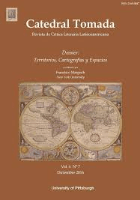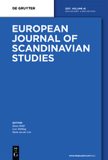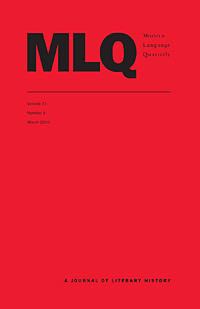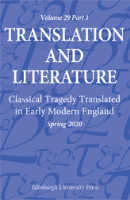
Turk Dili ve Edebiyati Dergisi-Journal of Turkish Language and Literature
Scope & Guideline
Enriching Global Perspectives on Turkish Language and Literature
Introduction
Aims and Scopes
- Turkish Language Studies:
The journal covers various aspects of the Turkish language, including its historical evolution, dialectal variations, and linguistics, as evidenced by papers exploring dialect contact and lexical comparisons. - Literary Analysis and Critique:
It includes critical studies of literary works, focusing on thematic, stylistic, and ideological dimensions, such as examinations of character types in drama and the socio-cultural implications of Turkish literature. - Translation Studies:
The journal investigates translation practices and their impact on literature, exploring both historical translations and contemporary issues in the field, as seen in studies of notable translations of Turkish literary works. - Cultural Contextualization of Literature:
Research often contextualizes literary texts within broader cultural and historical frameworks, analyzing how literature reflects societal changes and individual identities. - Comparative Literature:
The journal engages in comparative literature studies, drawing parallels between Turkish literature and other world literatures to highlight influences and intercultural dialogues. - Folklore and Oral Tradition:
It examines the role of folklore in Turkish literature, investigating how oral traditions shape literary narratives and cultural identity.
Trending and Emerging
- Interdisciplinary Approaches:
There is a growing trend towards interdisciplinary research, integrating perspectives from sociology, psychology, and cultural studies into literary analysis, which allows for a more nuanced understanding of texts. - Digital Humanities and New Media:
Emerging themes include the exploration of digital platforms and their impact on literature, such as analyses of social media narratives and their emotional language, indicating a shift towards contemporary modes of communication. - Post-Colonial and Global Perspectives:
Recent works increasingly adopt post-colonial frameworks, analyzing Turkish literature in the context of global literary trends and the complexities of cultural identity in a globalized world. - Focus on Contemporary Issues:
There is a noticeable rise in studies addressing contemporary societal issues through literature, including migration, identity, and socio-political critiques, reflecting current global challenges. - Revival of Historical Texts:
A renewed interest in historical texts and their relevance to modern Turkish identity is emerging, as scholars seek to connect past literary traditions with contemporary cultural narratives.
Declining or Waning
- Traditional Literary Forms:
There is a noticeable decline in studies focusing on traditional forms of Turkish literature, such as classical poetry and prose, which were more prevalent in earlier volumes. - Historical Linguistics:
While historical linguistics was once a significant focus, recent publications show a waning interest in this area, with fewer papers dedicated to the evolution of the Turkish language over time. - Local Folklore Studies:
Research centered on local folklore and its literary representations appears to be diminishing, as the journal increasingly emphasizes broader cultural and comparative analyses. - Gender Studies in Literature:
Although gender issues were once a prominent theme, there seems to be a decline in the frequency of gender-focused literary analyses, indicating a potential shift towards other critical frameworks.
Similar Journals

Acta Universitatis Lodziensis Folia Litteraria Romanica
Championing Quality Research in Linguistics and LiteratureActa Universitatis Lodziensis Folia Litteraria Romanica is a distinguished open-access journal published by LODZ UNIV PRESS since 2016, dedicated to advancing scholarship in the realms of Linguistics and Literature and Literary Theory. With a strong commitment to disseminating high-quality research, the journal serves as a vital platform for scholars and practitioners aiming to explore the complexities of language and literary studies. It is positioned within Q4 in Linguistics and Language and Q3 in Literature and Literary Theory, evidencing its growing influence in these fields. The journal's inclusion in the Scopus rankings, with notable placements in both the Arts and Humanities and Social Sciences categories, underscores its relevance and engagement with contemporary discourse. Located in Poland, the journal encourages contributions from a diverse range of voices and perspectives, promoting scholarly dialogue and innovation, while adhering to an open-access format for enhanced accessibility. Researchers, professionals, and students will find Acta Universitatis Lodziensis Folia Litteraria Romanica an invaluable resource for their academic pursuits.

Catedral Tomada-Revista de Critica Literaria Latinoamericana-Journal of Latin American Literary Criticism
Connecting Cultures through Literary AnalysisCatedral Tomada - Revista de Crítica Literaria Latinoamericana is a pioneering journal dedicated to the exploration and critique of Latin American literature and its broader cultural implications. Published by the University of Pittsburgh's Library System, this Open Access journal has been instrumental since its launch in 2013 in making scholarly discussions accessible to a wider audience. With an ISSN of 2169-0847, the journal serves as a vital platform for researchers, professionals, and students interested in Literature and Literary Theory, Cultural Studies, and Linguistics and Language. Its esteemed ranking places it in Quartile 1 for Literature and Literary Theory and Quartile 2 for the other categories, underlining its commitment to high-quality academic discourse. Converging insights through a quarterly publication schedule from 2019 to 2024, Catedral Tomada aims to foster a rich dialogue on Latin American literary criticism, encouraging innovative perspectives and diverse voices within the field.

Francofonia-Studi e Ricerche sulle Letterature di Lingua Francese
Exploring the Depths of Francophone LiteratureFrancofonia-Studi e Ricerche sulle Letterature di Lingua Francese is a distinguished academic journal dedicated to the exploration of French language literature, published by CASA EDITRICE LEO S OLSCHKI. Located in Florence, Italy, this journal provides a scholarly platform for addressing contemporary issues, critical theories, and advancements in the fields of linguistics and literary studies. With an ISSN of 1121-953X and an E-ISSN of 2036-5659, it operates within the competitive framework of academia, currently positioned in the Q4 quartile for both Linguistics and Language, as well as Literature and Literary Theory, according to 2023 rankings. Although the journal does not offer open access, it is vital for researchers and students seeking to deepen their understanding of francophone literary traditions. Additionally, the journal's engagement in relevant discourses positions it uniquely, making it an essential resource for scholars interested in the nuances of linguistic and literary developments affecting French-language literature over converged years of publication (2020 to 2022). Explore this journal to connect with the vibrant community dedicated to francophone studies and contribute to the discourse in these intertwined fields.

Selcuk Universitesi Edebiyat Fakultesi Dergisi-Selcuk University Journal of Faculty of Letters
Elevating Academic Excellence Through Open AccessWelcome to the Selcuk University Journal of Faculty of Letters, a prominent scholarly publication dedicated to advancing the fields of humanities and social sciences. Published by Selcuk University, Faculty of Letters, this journal features innovative research and critical studies across various literary, linguistic, and cultural disciplines. With an Open Access model since 1981, the journal ensures that knowledge is freely accessible, fostering a collaborative academic environment for researchers, professionals, and students alike. The journal's commitment to scholarly excellence is reflected in its rigorous review process and its aim to elevate discourse within the humanities. Join a vibrant community through the Selcuk University Journal of Faculty of Letters and contribute to the shared pursuit of knowledge and understanding.

Complutense Journal of English Studies
Exploring New Frontiers in English ScholarshipThe Complutense Journal of English Studies, published by the Universidad Complutense de Madrid, is a prominent Open Access journal dedicated to advancing the field of English language and literature studies. Established in 2014, this journal provides a vital platform for researchers, educators, and students to disseminate original research, critical analyses, and creative works that contribute to the understanding of English studies in a global context. With its commitment to quality scholarship, the journal seeks to enhance interdisciplinary dialogues and foster new insights into contemporary linguistic and literary issues. Although it currently does not have a designated HIndex or Scopus Rank, its accessibility ensures that a wide audience can engage with a diverse range of scholarly contributions. Located in the heart of Madrid, the journal embraces an inclusive approach to the study of English, inviting submissions that reflect both traditional paradigms and innovative perspectives.

European Journal of Scandinavian Studies
Showcasing groundbreaking research in Scandinavian linguistics.European Journal of Scandinavian Studies is an esteemed journal published by Walter de Gruyter GmbH, dedicated to advancing scholarship in the fields of Cultural Studies, Linguistics and Language, and Literature and Literary Theory. Since its inception in 2010, the journal has been a pivotal platform for researchers and scholars, showcasing cutting-edge research and critical discussions pertaining to Scandinavian languages and cultures. With an ISSN of 2191-9399 and an E-ISSN of 2191-9402, the journal emphasizes accessibility to impactful academic work, despite its current non-open access model. While the journal is categorized within the Q4 quartile for Cultural Studies and Linguistics/Language, it has shown notable potential in ranking higher in its specialized domains, fostering a growing community of researchers invested in Scandinavian studies. The journal's office is located in Berlin, Germany, further enriching its European scholarly context. As it continues to evolve, the European Journal of Scandinavian Studies serves as a vital resource for academics seeking to engage deeply with the multifaceted aspects of Scandinavian culture and linguistics.

MODERN LANGUAGE QUARTERLY
Advancing Literary Scholarship with Precision and Insight.MODERN LANGUAGE QUARTERLY, published by DUKE UNIVERSITY PRESS, stands as a premier journal in the field of Literature and Literary Theory, recognized for its intellectual rigor and scholarly contributions. With an impressive Scopus ranking of #156 out of 1106 in its category, the journal showcases an 85th percentile standing, indicating its significant impact within the academic community. The journal, with ISSN 0026-7929, focuses on critical analysis, literary theory, and the intersection of language and culture, making it an essential resource for researchers, professionals, and graduate students alike. As it converges from 1996 to 2024, MODERN LANGUAGE QUARTERLY continues to uphold its tradition of excellence in literary scholarship, contributing to the advancement of knowledge and fostering a deeper understanding of literature's role in society. With its Q1 ranking in 2023, this journal represents the forefront of literary studies, providing a vibrant forum for the exchange of ideas and innovative research in the humanities.

ZEITSCHRIFT FUR DEUTSCHE PHILOLOGIE
Exploring the Depths of German Linguistic HeritageZEITSCHRIFT FUR DEUTSCHE PHILOLOGIE is a prestigious academic journal dedicated to the exploration of German philology, literature, and linguistic theory, published by Erich Schmidt Verlag. With a commitment to advancing scholarship in the field, it showcases a diverse range of research articles, critical essays, and theoretical explorations that contribute to the understanding of German language and its literary heritage. While the journal has experienced fluctuating coverage in indexing databases such as Scopus, it remains a valuable resource for researchers and students alike, offering insights into relevant academic discourse. Despite not being openly accessible, the journal continues to serve as an important platform for academic exchange and innovation, allowing scholars to engage with the complexities of language and literature. Its rigorous peer-review process ensures that only high-quality research is published, making it essential reading for anyone invested in the humanities.

Listy Filologicke
Cultivating a Nexus for Innovative Academic Exploration.Listy Filologicke is a distinguished academic journal published by the Institute of Classical Studies at the Academy of Sciences of the Czech Republic, focusing on the interdisciplinary fields of History, Linguistics and Language, and Literature and Literary Theory. With an ISSN of 0024-4457 and an E-ISSN of 2570-9410, this journal has been a pivotal platform for scholarly discourse since its convergence years began in 2003. Notably, it holds a Q3 classification in History and Linguistics and Language, and a Q2 in Literature and Literary Theory as of 2023. Its rankings within Scopus illustrate its relevance and impact in academia, with noteworthy positions in the Arts and Humanities and Social Sciences categories. Researchers, professionals, and students will find Listy Filologicke an invaluable resource for exploring cutting-edge research, critical analyses, and discourse that contribute significantly to their respective fields. Based in the heart of the Czech Republic, it continues to promote scholarly excellence and foster international collaboration.

Translation and Literature
Fostering Dialogue Across Literary LandscapesTranslation and Literature is a leading academic journal published by Edinburgh University Press, focusing on the intricate relationship between language and literature within the realms of translation studies. With an ISSN of 0968-1361 and an E-ISSN of 1750-0214, this journal provides a crucial platform for scholars and practitioners to explore and disseminate research that addresses both the theoretical and practical aspects of translation. Since its inception in 1996, Translation and Literature has established itself as an essential resource, particularly noted for its contributions to the fields of linguistics and literary theory, as indicated by its Q4 ranking in both categories in 2023. The journal's articles are designed to foster dialogue across disciplines, encouraging innovative thinking and collaboration among researchers, professionals, and students alike. Access to this valuable resource is currently available through subscription, ensuring high-quality scholarship reaches a diverse audience dedicated to advancing the understanding of translation's role in literature.